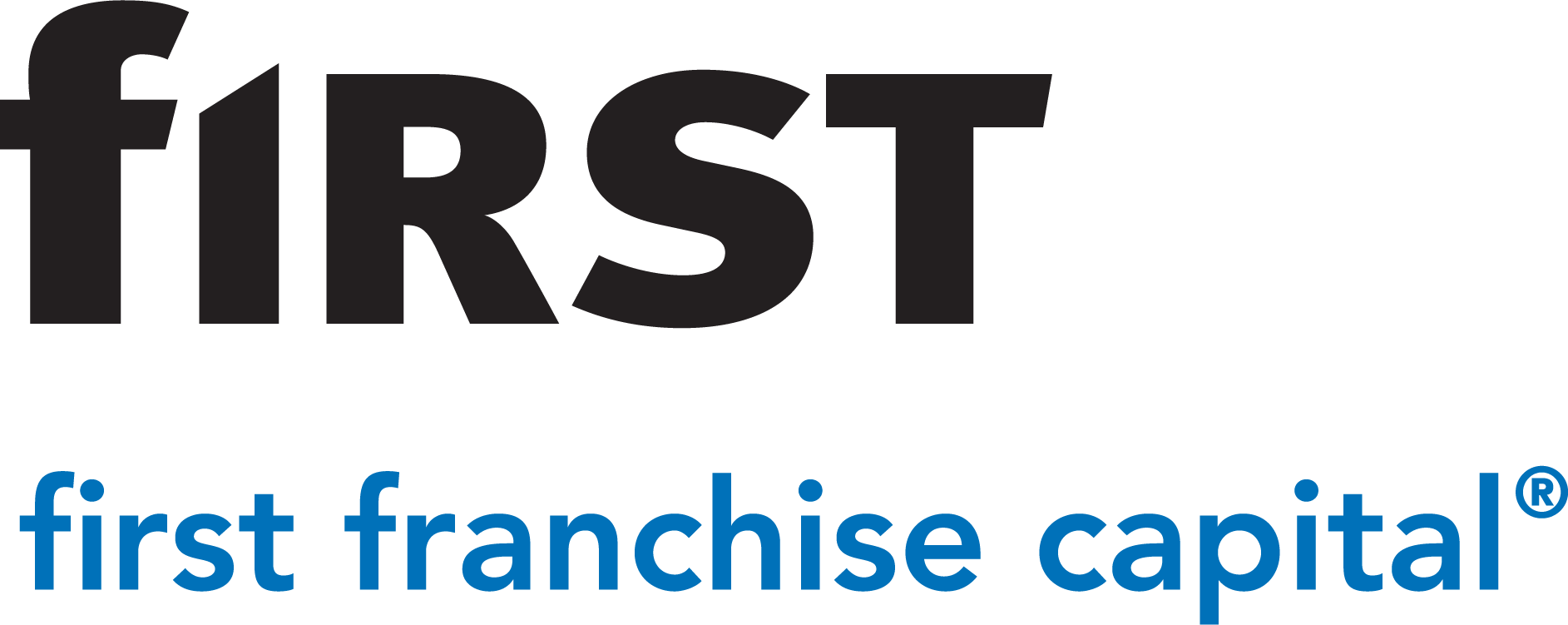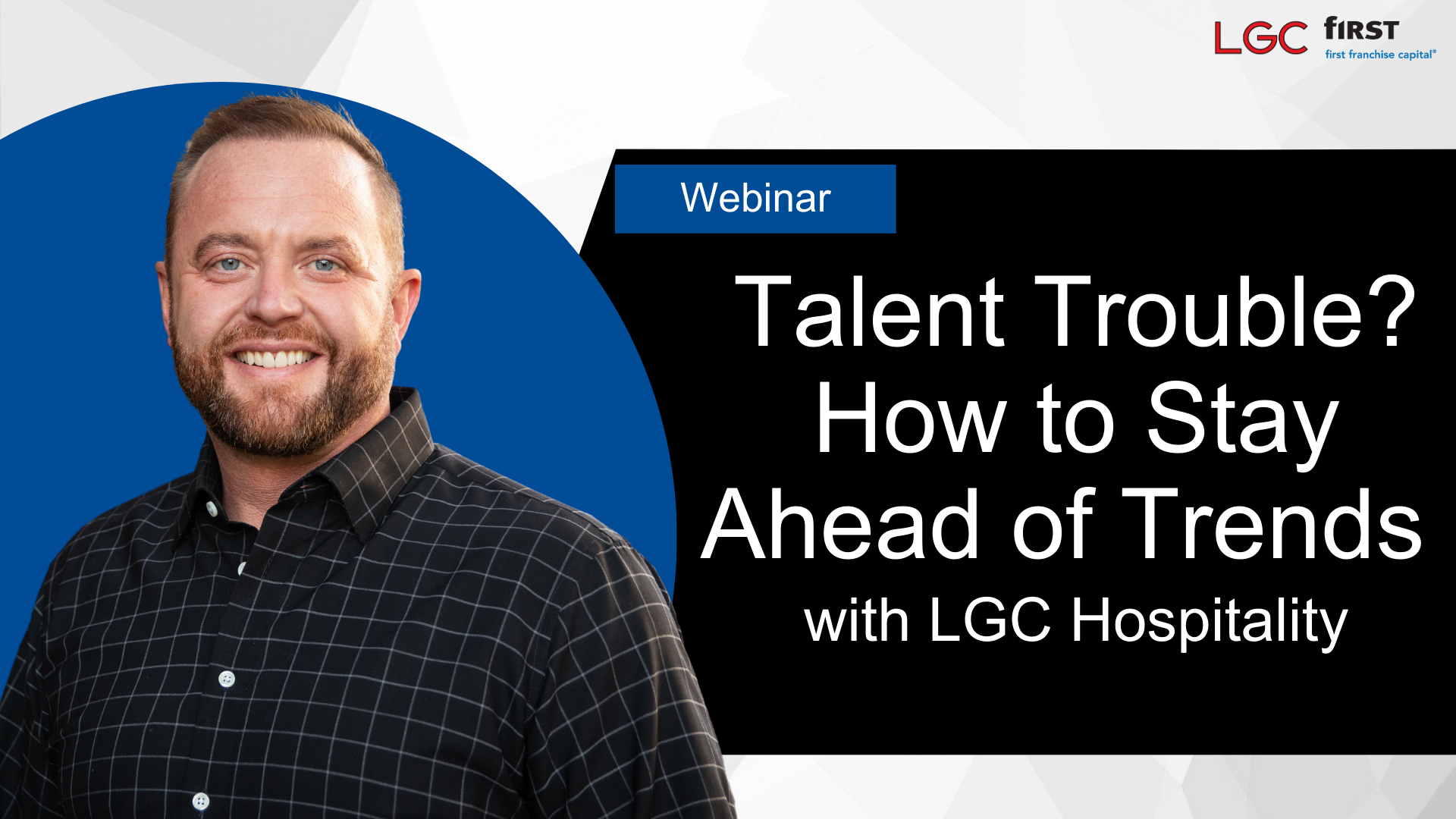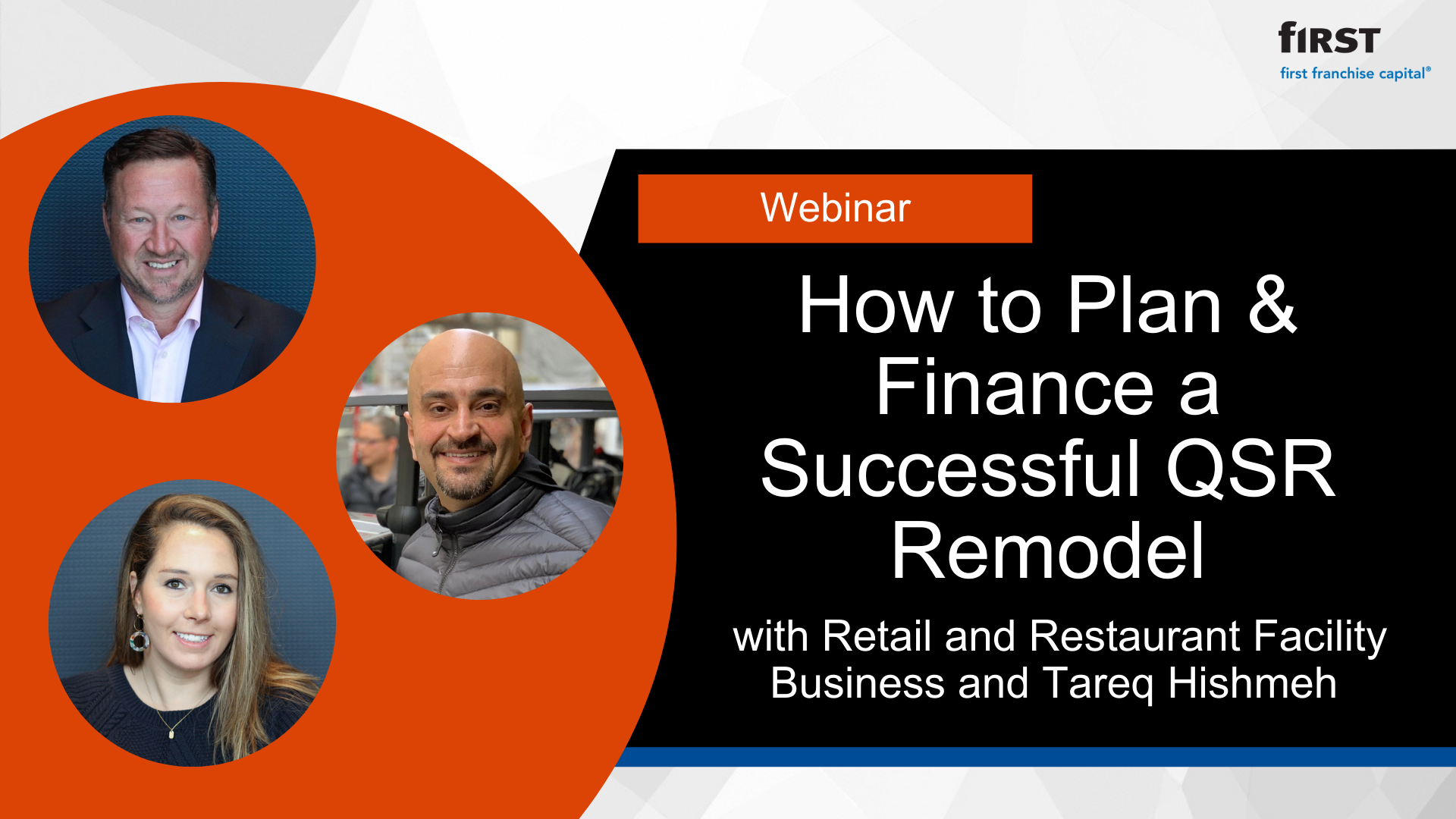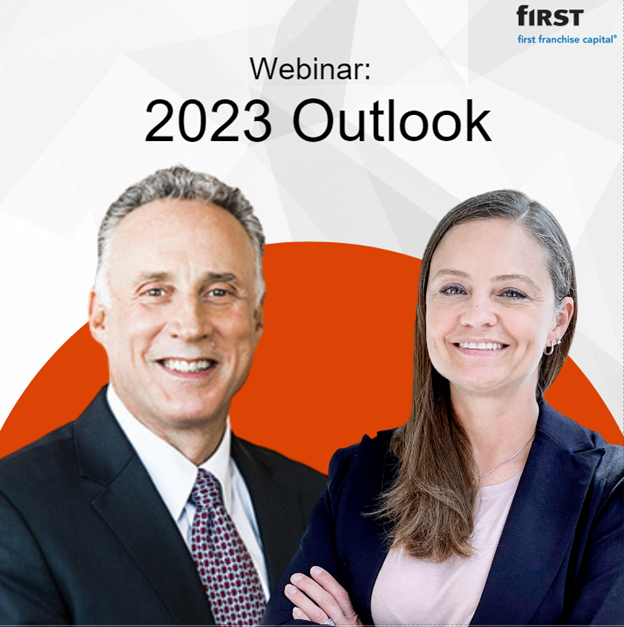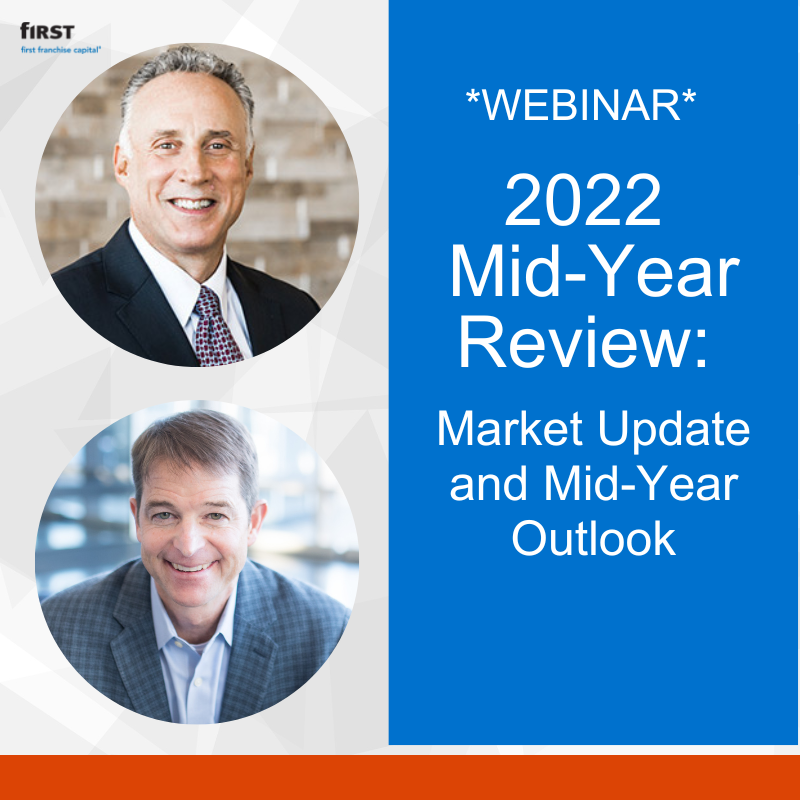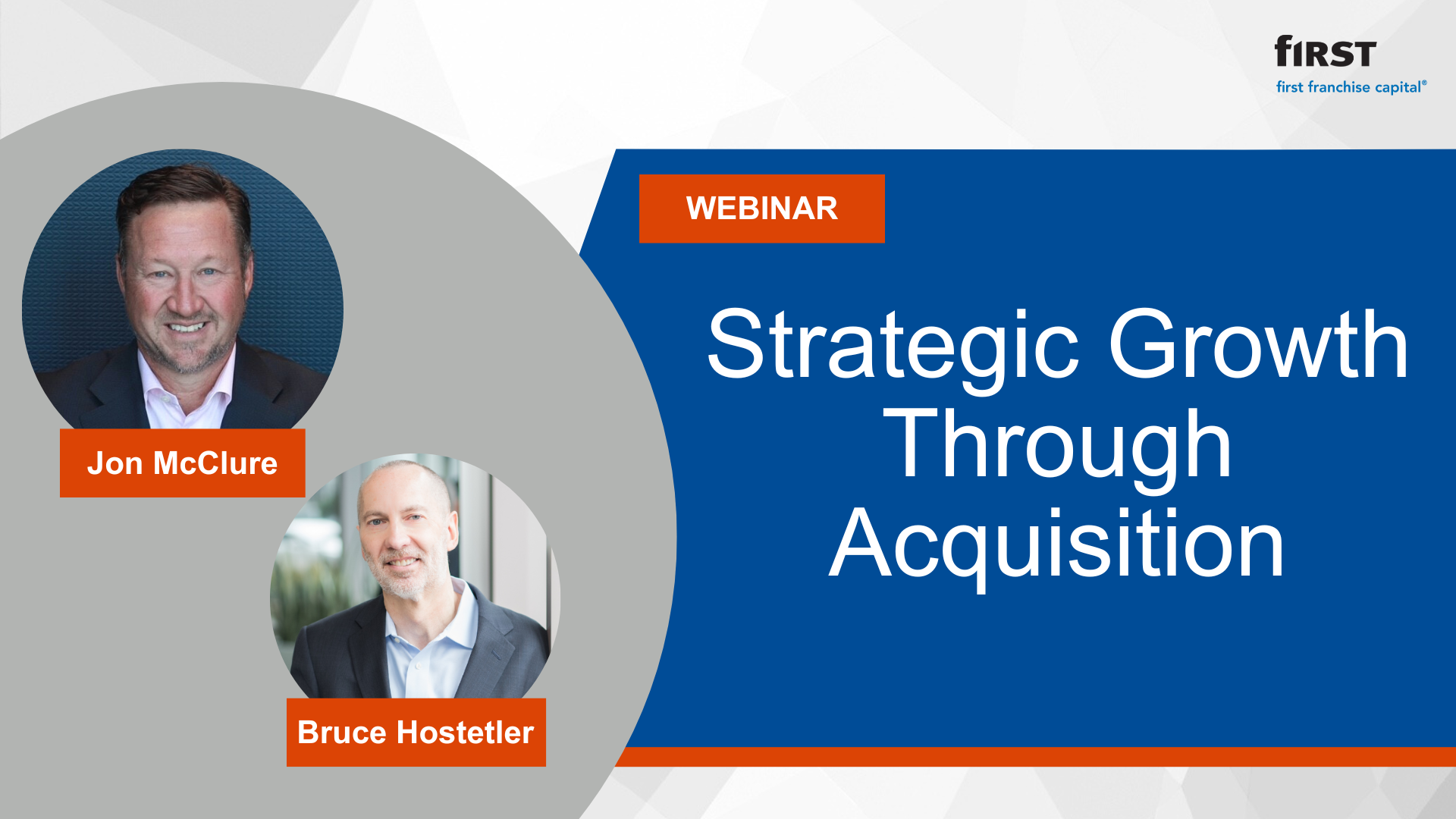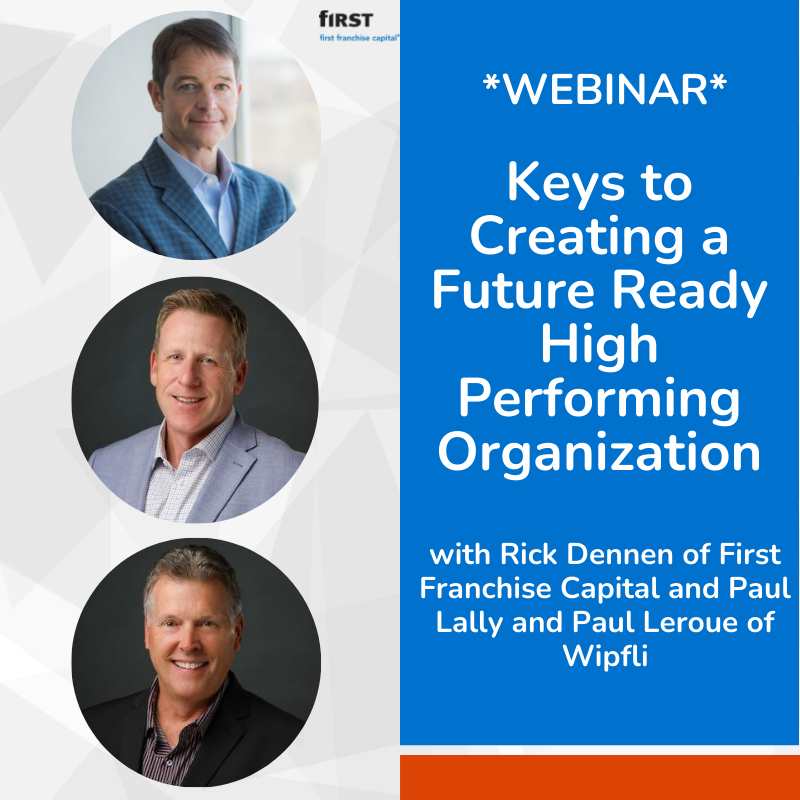Talent Trouble? How to Stay Ahead of Trends with LGC Hospitality
- 0.5
- 1
- 1.25
- 1.5
- 1.75
- 2
Bridget Haight: Hi, and welcome to Foresight with First Franchise, where we bring research and data- backed insights to dig into the minds of industry leaders to learn how to stand out, navigate and break through this ever- changing industry. I'm your host, Bridget Height, and today I'm delighted to have Glenn Greenwalt, co- founder of LGC Hospitality. Glenn is here to answer your questions about the current trends in talent and labor, and thanks for being here, Glenn. It's nice to have you.
Glen Greenwalt: Glad to be here.
Bridget Haight: Well, just to start things out, can you tell us a little bit about LGC?
Glen Greenwalt: Yes. We are a hospitality staffing company, pure play, meaning we don't play, we don't mess around with whatever different industries. It's all hospitality. I believe we're the largest in the US at what we do just because of that feature. So we have 45 offices in the US and we service food service and hospitality companies like K through 12, college, hospitals, big event venues, so professional sports arenas with the concessions. And we also service, especially since COVID happened, more and more we're getting into quick service side, especially on direct hire because of the talent shortage.
Bridget Haight: And there is certainly that. So the conversation came to be because we had an influx of questions from those listening about talent and labor in the quick serve restaurant space. So can you provide an overview of the current labor market and how franchisees are being impacted right now?
Glen Greenwalt: Sure. And forgive me, I brought some notes just so I make sure. I just want to make sure to serve people at a higher level and not to forget some things. Obviously right now it's supply of the workforce is down, demands up, pay is up. In a lot of cases, performance is down. I think that the challenges now are coming with the quality and the quantity of applicants, the retention, how do we retain who we have? And then also we're facing increasing costs across the board, sometimes up to double than what we've been experiencing.
Bridget Haight: When you say costs, can you go into that a little bit more?
Glen Greenwalt: Just the wage inflation. So we have been in business for 20 years and one of the things that I noticed along the way was for our housekeepers, for instance, they were making $8 to $9 an hour. That was the market price for almost 18 years. And I always thought they were some of the hardest working people that we had, but we don't set the rates to market, and that number has gone from 16 to $20 an hour just in the last couple of years. Well, obviously that cost has been born to carried by the employers.
Bridget Haight: And how did it begin? I mean, it seems recent, but is that right? Was it sparked by the pandemic?
Glen Greenwalt: Some of it was. I think it was definitely made worse by the pandemic. I did a video, and you can find it on my LinkedIn account, and it was about that very specific thing. It was called Men Not At Work. What I looked at was that the big number, we always see the unemployment numbers. So we say, how can unemployment be so low? And yet there's not enough workers out there. The problem or what started happening, and this happened as early as, it peaked in 1999, and it's called workforce participation rate. So that's a number in staffing that we pay attention to more than the unemployment rate. The unemployment rate is too manipulated. So there's a lot of times when unemployment comes out the next month there'll be a revision down that won't be on the news.
Bridget Haight: Oh, interesting.
Glen Greenwalt: So I think last month there was$ 150,000 job revision after they said how great it was. So it makes it hard to get a beat on what's really going on there. If you look at something called workforce participation, that's how many people in the United States are working. And if you looked at prime age males, because a lot of people will say, oh, it's the baby boomers, and that's true, but just as big of a force is prime age people. So specifically I looked at prime age males in the workforce, which are 25 to 54 years old, 8 million of them are sitting out on the sidelines.
Bridget Haight: I just don't understand that. That's crazy.
Glen Greenwalt: Yeah, it's a huge number. So yeah, the baby boomers are leaving and people are just out of the workforce. In the US we've had 40 years of what I call the most benign economic times that have ever existed and since, so in the early eighties when interest rates have been coming down, that's been happening for 40 years and they've kind of probably bottomed. So all that extra money out there just creates this environment. We can do this and people's homes are worth more. Everything is, the stock market is raging so they feel wealthy. There's a wealth effect there, and they don't feel the need to work. I think that long term it may not be a problem. So one of the things that we see, and I've been in this, I started head hunting in 98. I was 1998, I was seven years old. So we've seen this before with the dot com bust where there's so much kind of money in the system, the stock market's booming, everything's hot, and people can say, oh, I can make money by day trading now. And they do. And then we get this event where everything flipped. So I think that right now, the further, so I saw this in 99, we saw it in 08, 09, this kind of lead up to the event and we're seeing it now, and the further the pendulum swings one way, well, that probably means it's going to revert to the mean, but also overshoot on the backside. So I think long term that is going to be a bigger issue. And for me, there's probably a lot of people on this that are going to watch this, that want strategies for hiring, and we'll certainly give those to you. But I would also think about what's my strategy going to be for when things flip? Because if you're still worried about finding the right people now that means you might be in a little bit of a reactive role and when these things flip, they can be devastating if you're not ready for them. But they can also be very powerful catalyst for your business growth and taking market share if you're pre- positioned for what the next step is. So a lot of people chase, but the best and the most survivable ones are going to be proactive and say what's ahead? What can we do now to prepare ourselves for that? What I'm talking about is anticipation. So I think that the best leaders anticipate what's coming. And if you think about these kids that play these video games, I used to think it was the craziest thing that they would watch YouTube videos of other kids playing the video games. I think it's insane too, and I realized something, what they're doing is looking further ahead so that when they're playing their game, they can anticipate where they're going to get killed before they get killed. What a wonderful idea for businesses. How can I look ahead so I can see where I'm going to get killed before I get killed? So it's kind of like Wayne Gretzky said is I don't go to the puck. I go to where the puck is going, and the most successful businesses are not chasing the puck. They're going to where the puck is going. So how do you do that? You can go to seminars, you can read, you can look at, I looked at what, because in the 1940s there were three inflationary waves. In the 1970s, there were three inflationary waves. I believe this time we're going to have three inflationary waves. So what happens is it comes up and it starts to go down, which is exactly where we're at right now. But in the forties and the seventies, it went back up higher, it went down and it went back up higher yet. So you can look and say, well, what did companies do? What did the government do? And the government, I think that this inflationary wave is driven by fiscal, which is the government. That's what happened in the forties. A lot of people were comparing this to the seventies, but I think that was more driven by monetary policy. So how did they correct, and I'll tell you how they fixed both. In the forties, they corrected fiscal inflation through raising taxes and what else? They raised taxes and they put price controls on goods and services. I think that's probably more similar we're facing now. In the seventies, it was more of a lending issue. It was too much money being lent, so they just raised rates very high up to 18%. That's what we always hear about. If you apply that here, if the government raises rates here and it's being driven by fiscal things, it's not going to work. What it's going to do is it'll knock it back, it'll knock it down, but when it comes back, it's going to come back even worse. So I think that's kind of where we're at now. How do you hedge against inflation? You could buy agricultural stocks, so you could buy some energy stocks, and I said businesses do own investments. So last year in Germany, last year in Germany, energy costs went up by 10 times.
Bridget Haight: Oh my gosh.
Glen Greenwalt: They crushed small businesses. I saw on Twitter these guys, and they said, here's my last year bill, and it was 500 last month and here's this month and it's 5, 000. Could they have hedged? Yes, because they could have bought, like I said, if I'm going to spend, let's say my company spends$ 4, 000 a year on energy, I could buy an energy ETF for 4, 000. If my energy costs go by 10X, so will that. There's ways to hedge, but then also I think it's how do you get ahead of a lot of this stuff? It's self- education, going to seminars, watching people that have already done it.
Bridget Haight: It sounds like also understanding history. I love that it's not just about knowing crystal ball, it's about knowing how this has played out in the past.
Glen Greenwalt: Yes.
Bridget Haight: That's brilliant.
Glen Greenwalt: I think that in business, and if you look at when did agriculture takeoff, it was when people figured out that there were cycles and seasons because it seems so weird to us, but there was a point in history where they didn't know that there were seasons that were predictable after they figured that out, well, now they can farm. And I think that in business seasons are predictable. So I believe we're going into winter, can you thrive in winter? Yes, you can thrive in winter as long as you have harvested and you've built your storehouses up enough, you can go ski and have fun while everybody else is suffering. But I'm big into the cycles now. I follow a man named Ray Dalio who was one of the biggest hedge funds on the planet. He's at a point in his career where he is giving back, and he does, so you can follow him on LinkedIn, he talks about the cycles. There's another book called The Fourth Turning, which I would recommend anybody to read, and it's just about the same. It's about the fourth turning of the cycles and how it looks and how people are during these cycles. And it is really compelling when you look at it like, oh yeah, that's probably true.
Bridget Haight: Interesting. Okay, thanks for that. Can you expand on how the rising cost of labor is impacting businesses? I mean, we've covered a little bit of that already, but what are some of the challenges that quick serve restaurants face in terms of providing competitive wages and benefits?
Glen Greenwalt: Competitive wages and benefits are important, but I don't think that's what's keeping people attracted as much. I think that just as important is are we engaging with our staff? Are we engaging with the people that we're bringing on board? How are we selling to them to come on board? So if you're kind of in this outdated system where you're just running ads and making a few calls and set up interviews, that first interview this week, second interview next week, you're going to get killed by the speed of things. So if you can come, we have at LGC dishwashers in Houston, Texas that are currently making$ 25 an hour.
Bridget Haight: Wow, that's great.
Glen Greenwalt: They could come in for a temp job and be working tomorrow. So if your organization is making them come back for two, three interviews and you got to meet the, that's just not going to work in these times. So I think that just as important as what the package is is what is our hiring practice? Are we selling the company and the vision that we have? Are we finding out what they want, the staff? I think we fall down there a lot. So if I want to influence my staff, I have to know what they want first. So because what influences me, maybe they don't want that. Do you want growth? Do you want more money? What is it that you want? And here's what we want. Here's our vision. Can we get those aligned? So it's going to be working, and I think that's going to be the key moving forward just to keep people on board is do I have a vision for what I want from where this company's going? Because if I don't, how can I sell that? And there's a book, it's called the Good Book, and it says, without a vision the people will perish. And I think that a lot of companies just lack, this is where we're going, this is what we want. And if I know that, then people will follow. They'll want to come on the ride. But if I don't know that and I'm just trying to influence them with the carrot or the stick, it's an outdated, it's not going to work as well.
Bridget Haight: It's short term. Very short term. Yeah, I get that. Okay. So knowing that those on this call are mostly franchisees who own multiple restaurants and are not owners of the entire brand, they can't just create employee pay incentives on their own since they have to answer to the franchise itself. So what are some of the creative ways that quick serve restaurants are attracting and retaining talent?
Glen Greenwalt: We're seeing much more quick service restaurants utilizing our service, and they're doing it creatively. They are hiring managers from us, which we've done for since the beginning for 20 years we've done that, but now they're also hiring staff level people. They're paying flat fees to onboard even dishwashers or cashiers, and we try to get creative with them. So it's not just you want to bring the temp on, you can do that. You can do direct hire, but we also do things like the temp to hire so they can try them out. We have programs where they can hire them directly and then they'll just pay us a weekly fee for so many weeks just to supplement what they're already doing. So I think that's what we really are. We just add another level, another option for them to onboard. And it costs more in some ways, but in other ways it takes a lot of risk away too.
Bridget Haight: That's what it sounds like to me. It sounds like the risk because of the options that you give them, the risk is a little bit lower.
Glen Greenwalt: Yeah.
Bridget Haight: Okay. That makes sense. So what can quick serve restaurants do to improve their workplace culture in order to attract and retain talent?
Glen Greenwalt: I think I saw a study the other day and it was talking about engagement. And I think, and that might be kind of a cliche word these days, engagement, but it was done on a hundred. I'm going to look at my notes here so I don't mess up numbers. There's tons of studies about it. But the one I read was it was done in 142 countries. And so they pulled employees and they found out, they asked them, are you fully engaged, partially engaged, disengaged or actively disengaged? In the US, 29% of employees said they were actively engaged, which means 61% of your workforce is not fully engaged.
Bridget Haight: That's not great.
Glen Greenwalt: And 24% are actively disengaged, which means they hate your company and they hate you. Ouch. So when we hear that, it's like, well, we could get mad about it or whatever. Or we can say, what can we do? I think it's about the question. So what I would say is, what can I do to further increase engagement inside of our business? How can we get people excited and engaged in this? And I think it's kind of what I said earlier is there's got to be an alignment of value. So we, or an alignment of vision. So if I talk to my employees and I say, what are you looking for out of this? Maybe one will say, you know what? I just want to work nine to five and not have to take any stress home and great, and I can work for that, or I can decide that that's not what I need right now. And someone else might say, oh, I want the money, or I want to be the manager and I can talk to them about, it's going to take what the track looks like here. It's going to take this long to get there. This is what you can expect along the way. This is what I can need to see from you. And that's where the alignment is. But you can't get the alignment if you first don't know where the company is going. So the company's going this way, and I'll try to find similarities between what they want and what we want and get them them all pointed in the right direction because when that happens, there's trust.
Bridget Haight: Okay.
Glen Greenwalt: How do I know I can trust somebody? It's when they want the same thing I want, and if they're all aligned, then we're going to win together.
Bridget Haight: Great.
Glen Greenwalt: So I think that that's it. It's engagement, it's full engagement with your staff, understanding what they want. They understand what you want, your expectations, but they also see there's a bigger picture here.
Bridget Haight: Right. You seem really passionate about that. That's great. You came alive when we were talking about that. So what are the future trends that we can expect to see in the quick serve restaurant industry's talent landscape?
Glen Greenwalt: I just think some macro trends that we need to be aware of is that we have been living in 40 years of benign economic times of lowering interest rates also, which keeps inflation down or cost down for us, cheaper money. There's been cheap oil that keeps, because everything needs oil, the farmers, whoever your input costs are coming from there. And then we've also had globalization happening since the early eighties. That's in reverse right now. So we have, I think what we're facing is increasing input costs for labor and food. We're also increasing interest rates, so money will get more expensive and probably higher taxes just because, and I say this, it's not a doom, gloom type thing. It can be except if you know it's coming, you can position yourself now so that when everyone else is getting crushed and trying to figure out what to do next, that you have a plan in place. Because we know during the 1930s, the depression, there were still people working. We always see the horrible pictures. People still did work. 75% of the workforce was employed, people still made money. There were very successful companies born out of that. And I think I saw a stat that said 50% of the S&P 500 was born either in a recession or depression. Because if they can make it there, then they can make it during any time. So I think that's what it's about. It just is saying, how can I run my business in a new way? And if your gross margin's shrinking, getting bigger isn't always the right answer. I think that people are going to have to take a much more proactive approach with their financial statements, because if there's something wrong there, it's like this idea that if I have a tumor, it's not going to be eradicated by me gaining 50 pounds. At no time have I been to the doctor and said, Glenn, I think it's a good idea for you to gain 50 pounds. So it's the same with your business. If there's a problem, gaining 50 million in sales is not going to fix it. It actually makes it much worse. It's growing inside of there. So understanding how to read your financial statements, especially, I read something that said only 5% of businesses in the US use statement of cash flows. And the thing about business is if you don't have free, positive free cashflow, you're going to go broke. And that's the number that's on the statement of cash flows. So there have been the number, if you're looking at your income statements and the numbers on there, they don't always mean that much. There's been years where I felt like our company, and this is before I kind of knew this stuff was doing great, because I saw our income statements, but we never had cash. And I felt like we were always scraping by. And then there were other years where our income statements said that we were losing money and we were very cash rich.
Bridget Haight: Interesting.
Glen Greenwalt: And so the number on the income statement is just a theoretical number. That's what the IRS uses. But if you really want to know the health of your company, you'll know where's our cash coming from? It's either coming from three sources, it's coming from the business operations, it's coming from financing or it's coming from investments and businesses do buy investments too. So I just think that it's just a mindset shift is how can we position ourselves now to get ready for what's up so we're not just always chasing because probably people feeling like they're chasing right now. And that probably feels exhausting.
Bridget Haight: Yes, yes. There's that pendulum swinging again. It comes up a lot with our conversation here. So we've heard of all the challenges. Why is it important for someone to work with a staffing partner to help them succeed?
Glen Greenwalt: I think that we just provide another option for them. And I think that when we see businesses, if you've got all the resources, but you're not a resourceful business, it's not going to end well for you. The best businesses are the most resourceful. Resources we can get rid of. And we see that with, we see the movie stars' kids, they have all the resources, right? Except they end up in rehab or whatever. And then you hear the Oprah Winfrey story where she was horrible things happened to her and she became a billionaire. And the difference is, well, is resourcefulness. So we have one person that's got all the resources, but it's not very resourceful. They fail another one that's got resourcefulness with no resources, which means they just find the way. And I think that's what we're just for the resourceful, we're another option. When you work with us, we'll coach you too. So you might get two or three extra people in the door that you would've never had eyes on. It'll provide you a contrast. How do you know you're getting the best people from your ads? Maybe you'll see some from us and say, Hey, these people are way better than we're getting from the ads. So it provides contrast, but there's also coaching on our part because a lot of people are using antiquated methods or they're having their human resources run ads. We can help them with how do you sell your story? How do you get these people excited so they want to come back and work here. It's not just a matter of fill out the paperwork and we'll give you a call in three days anymore.
Bridget Haight: That's great. Okay.
Glen Greenwalt: So even if they just use us once or twice, and I think that it just makes them better. They'll learn from us along the way too.
Bridget Haight: That's great. I love the idea of you also being coaches so that you're not, yeah, it's not just you providing the staffing. You're also helping them learn how to do it for themselves. It's great. So thank you so much for all of those insight. It seems like you really support some of those gaps that are in the industry. Before we wrap up, what are some of the challenges and opportunities that you see for the quick serve industry, restaurant industry in the future?
Glen Greenwalt: I think that, well, there's always going to be a place, even in a recessionary environment, people will still eat out. They might not go to get steak, though. They might go to whatever the pizza place. So I think there's always going to be a space for it. Because of costs, it's going to become much more automated, and I think it's a great space to be, and as long as you are staying ahead of the trends and staying ahead of whatever's coming next, it's not a bad thing. I think people are so afraid of it. They don't want to look at it. If they look at it like, Hey, I'm going to learn this so I can take more market share and grow in this environment. It's like running from the bear. I don't have to be the fastest runner as long as someone else is behind me. As long as I'm a little faster than everybody else in business, I win. So I think that's how you should look at it, and you'll be much better positioned for it too. If you put some thought into it now.
Bridget Haight: Love it. Well, thank you, Glen. We appreciate you being here and all of your insights.
Glen Greenwalt: Thank you.
Bridget Haight: Well, thank you all for listening to Foresight with First Franchise Capital, where we bring research and data backed insights to dig into the minds of industry leaders to learn how to stand out and navigate and break through this ever- changing industry. I'm Bridget Height here with Glen Greenwald. Thank you for listening.
Today's Guests

